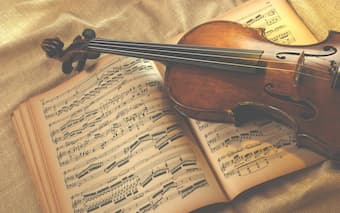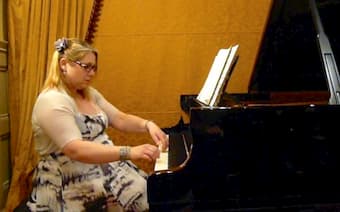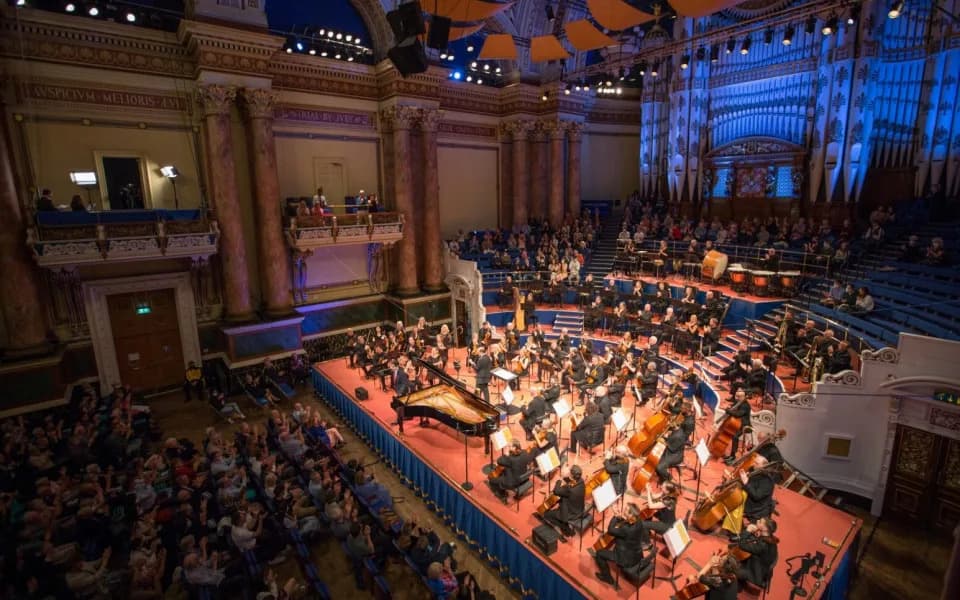
© Guthrie Music Library
How often a listener returning from a recital by an important performer remains unsatisfied. Not because of the imperfection of the artist’s playing but because of lack of penetration into the composer’s ideas – ideas that the amateur has cultivated lovingly and at length, developing his own special plan of interpretation in his own modest efforts at playing alone. How unwavering sometimes is an amateur’s conviction that he alone has found ideas and expressive possibilities in the piece that surpass everything he has heard in concert performance…….An amateur does not completely trust the professional. He treats each new public interpretation of his favorite work with jealousy, accusing the performer of superficial, insufficient love, and lack of selflessness in his chosen pursuits. – Samuil Feinberg, pianist & composer
Ludwig van Beethoven: Piano Sonata No. 14 in C-Sharp Minor, Op. 27, No. 2, “Moonlight” – I. Adagio sostenuto (Igor Levit, piano)
If you’re an amateur musician like me (I’m a pianist), you probably hear the music you are learning, or have learnt, fairly regularly in concert, on the radio or on disc. Hearing other people, whether professional musicians or amateurs, playing the music you know well can be inspiring and instructive, shining a new light on the music, offering insights and ideas, and helping us shape our own interpretations of that music.
As a young person hearing a piece I was learning played in concert by a famous pianist lent a special tingle of recognition, for these were the same notes and sounds my fingers were exploring and creating. There was also a sense of adventure: not only was the music elevated by being performed in the rarefied surroundings of the concert hall (as opposed to the dining room of my parents’ home, where my piano lived), the familiar was revealed in new or intriguing ways. Yet even at quite a young age, I felt a rather jealous possessiveness about the music I was learning: because it was “my” music.
When we learn music, we develop a sense of ‘ownership’, and making it one’s “own piece” is something that musicians strive for. A strong sense of ownership connects one to the music, and enables musicians to create a special communication with the audience.
Ownership also implies a certain possessiveness about the music, and many of us become deeply attached to the music we have learnt and play. Hearing the music in concert or on disc may provoke feelings of pleasure and excitement – that frisson of familiarity – but also dissatisfaction or irritation with another person’s performance and interpretation when it doesn’t quite match up to our own expectations of and attitude to the music.

The author performing at an amateur pianists’ concert
I’m sure I’m not alone in these feelings; in fact I know I’m not, because when I go to concerts with other amateur pianist friends (most of whom play at a similar advanced level to me), we always have lively conversations about what we’ve heard, the performer’s approach, interpretation, sound, and a whole host of other details.
Another aspect of this sense of possession, and one which Samuil Feinberg touches on in the quote at the head of this article, is the fact that amateurs often develop very strong feelings towards the music they are learning and playing. The word “amateur” comes from the French “to love” and much of the amateur’s activity seems to me to be in the service of love towards the music. Of course, professional musicians may also love the music they are playing (and I know many do) but there also has to be a separation, a standing back from the music, to enable them to work. A deep attachment to a certain piece may cloud one’s vision of it. Additionally, I think we each of us hold a “perfect” version of the music in our head (and heart) against which every performance or recording may be matched.
It frustrates me when the views of amateur musicians are dismissed by professionals or teachers, as if what they have to say about the music carries less value or gravitas because they have not had the training or experience. Many of the amateur pianists I know take their music-making very seriously; not only do they practice assiduously, they read around the music they are learning, do research, and thoroughly immerse themselves in their study. That we have the time to indulge in this kind of activity is one of the great pleasures of being an amateur musician – and if we guard our music with a jealousy bordering on obsessiveness, it is simply a mark of how much we care about that music.
For more of the best in classical music, sign up to our E-Newsletter



